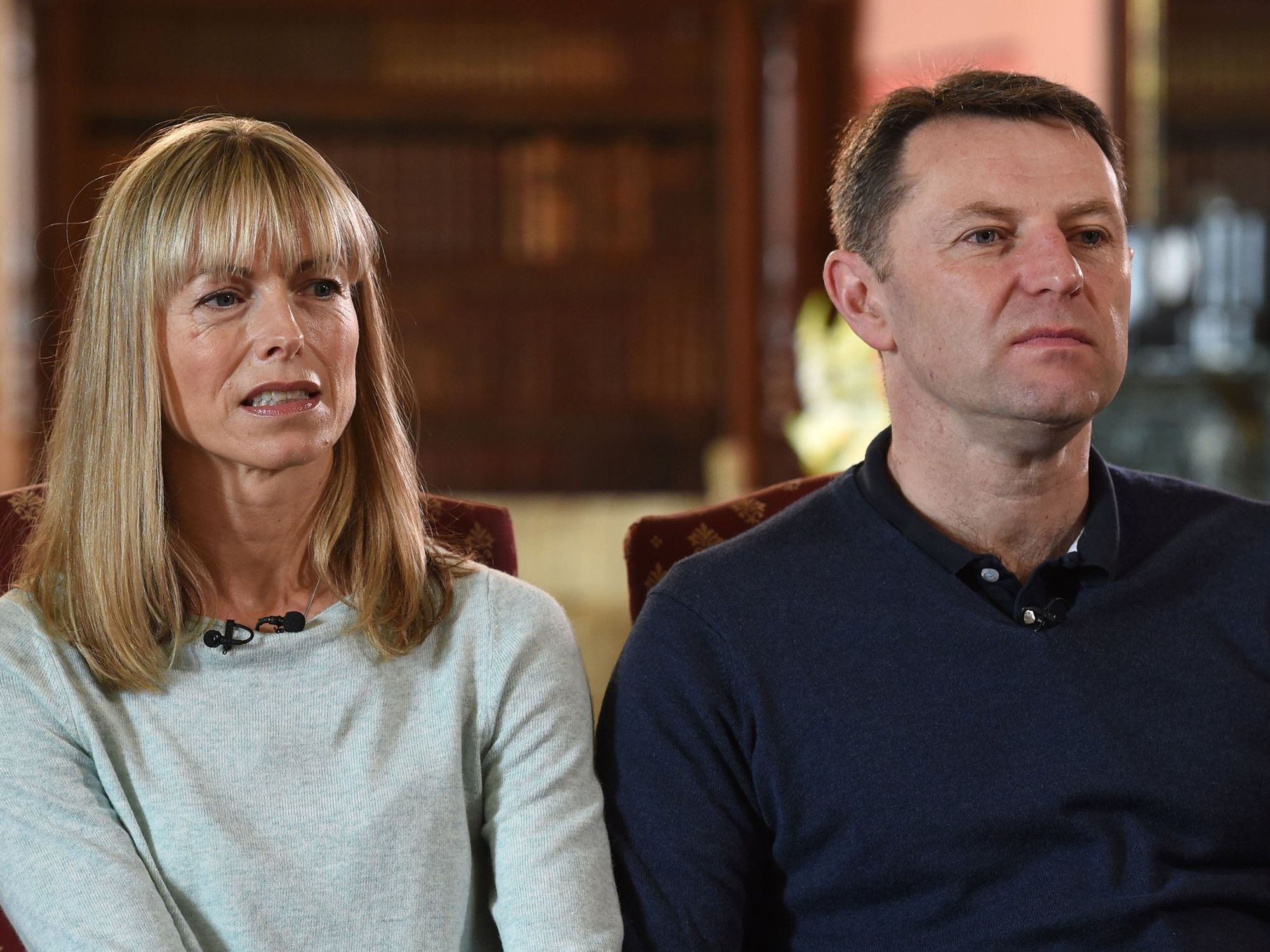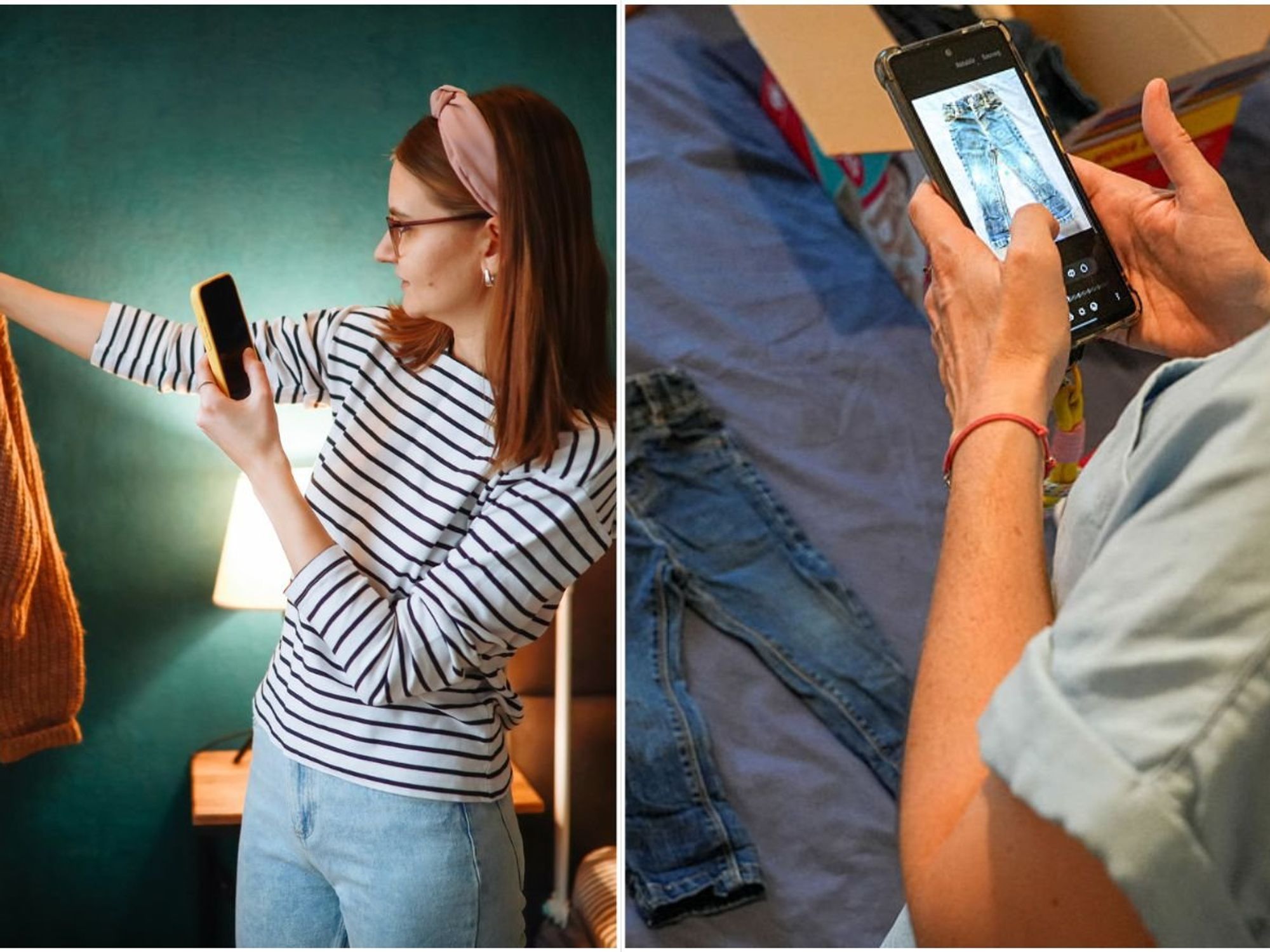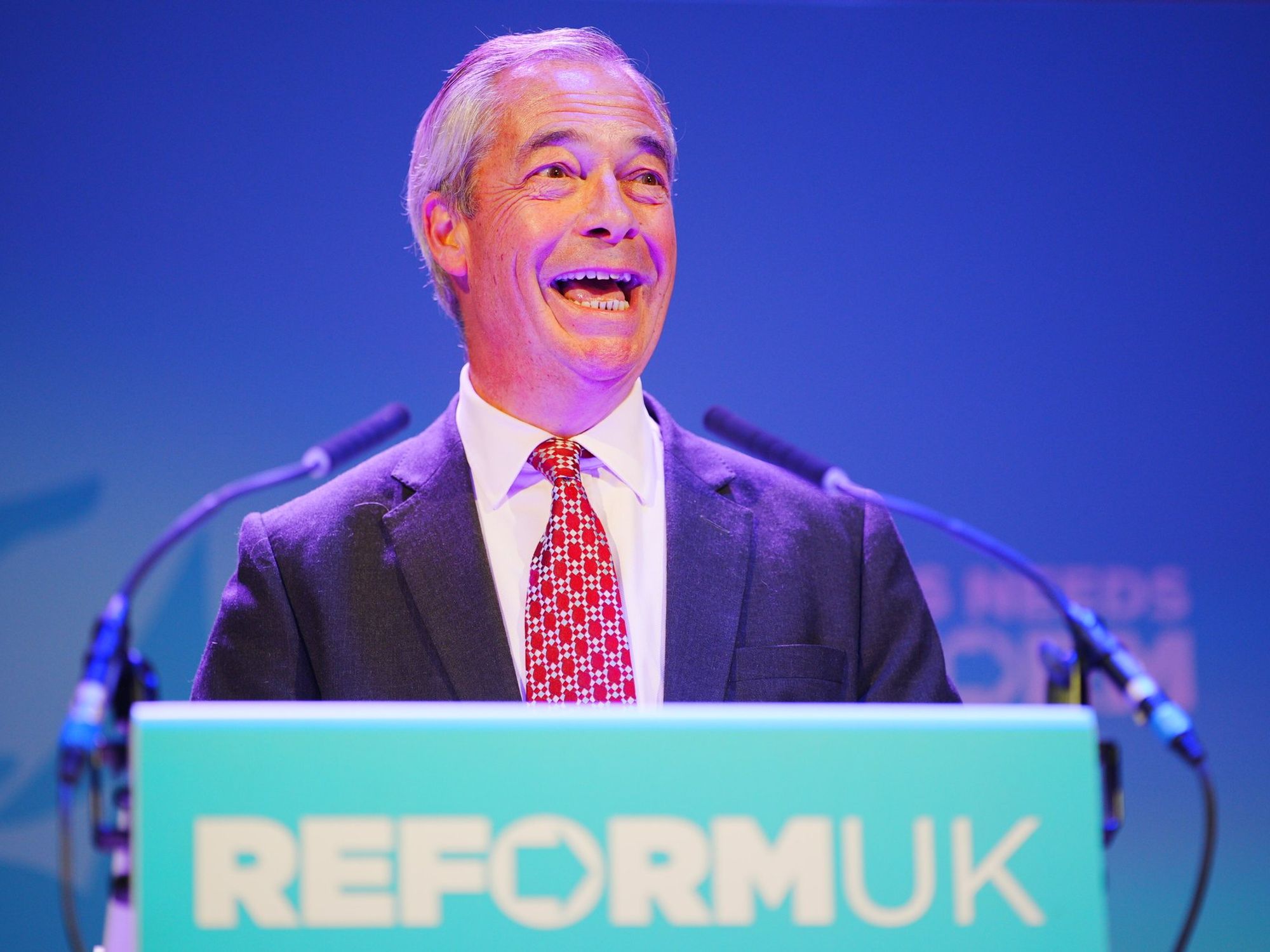POLL OF THE DAY: Should refugees get free access to British museums and heritage sites? - YOUR VERDICT
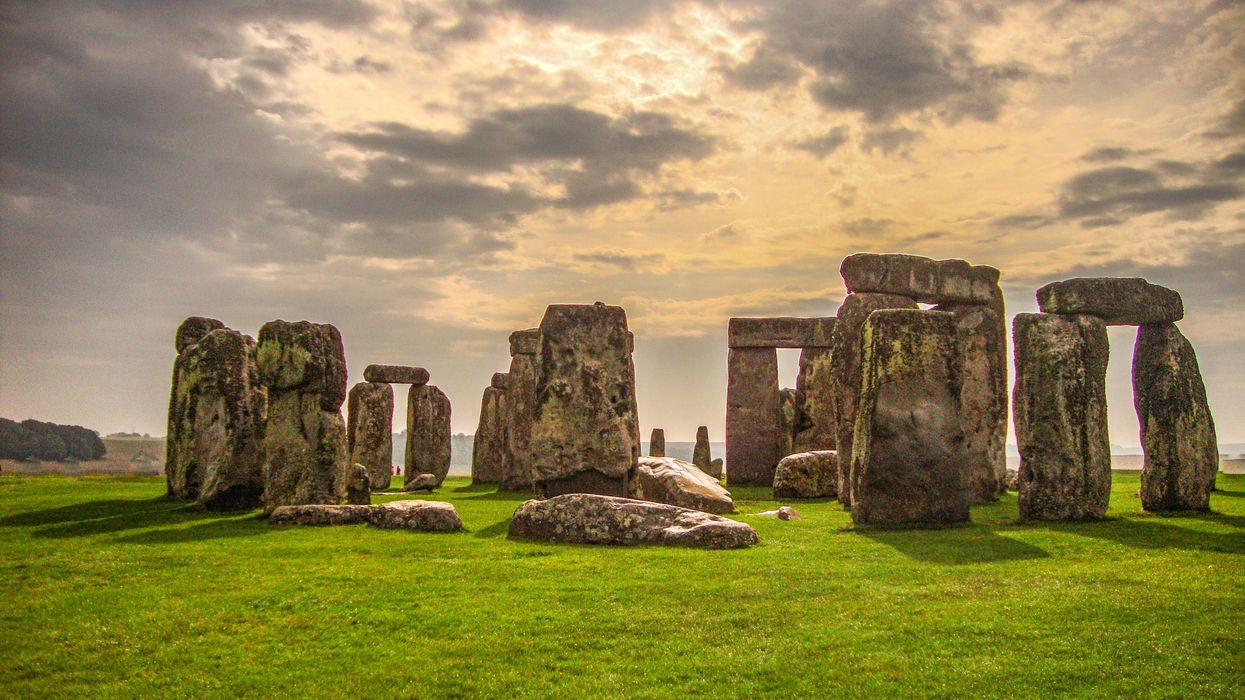
The scheme, which was launched in 2022, enables individuals who have been granted "refugee status" or "leave to remain in the UK as a displaced person" free entry to all of the English Heritage sites
|Wikipedia Commons

GB News members were asked whether refugees should get free access to British museums and heritage sites
Don't Miss
Most Read
Latest
English Heritage has been criticised for a "crazy" initiative which grants refugees free entry into their historic sites across the UK, with the charity being urged to "put pensioners and those of financial hardship" first.
The scheme, which was launched in 2022, enables individuals who have been granted "refugee status" or "leave to remain in the UK as a displaced person" free entry to all of the English Heritage sites.
However, recent social media backlash towards the scheme has forced the organisation to defend the move, making clear that they have a "range of initiatives" which support Britons in need, including "food bank users and children on school trips".
Standing firm against the furious critics, English Heritage said: "Refugees have arrived here with very little and we feel that this is the right thing to do."
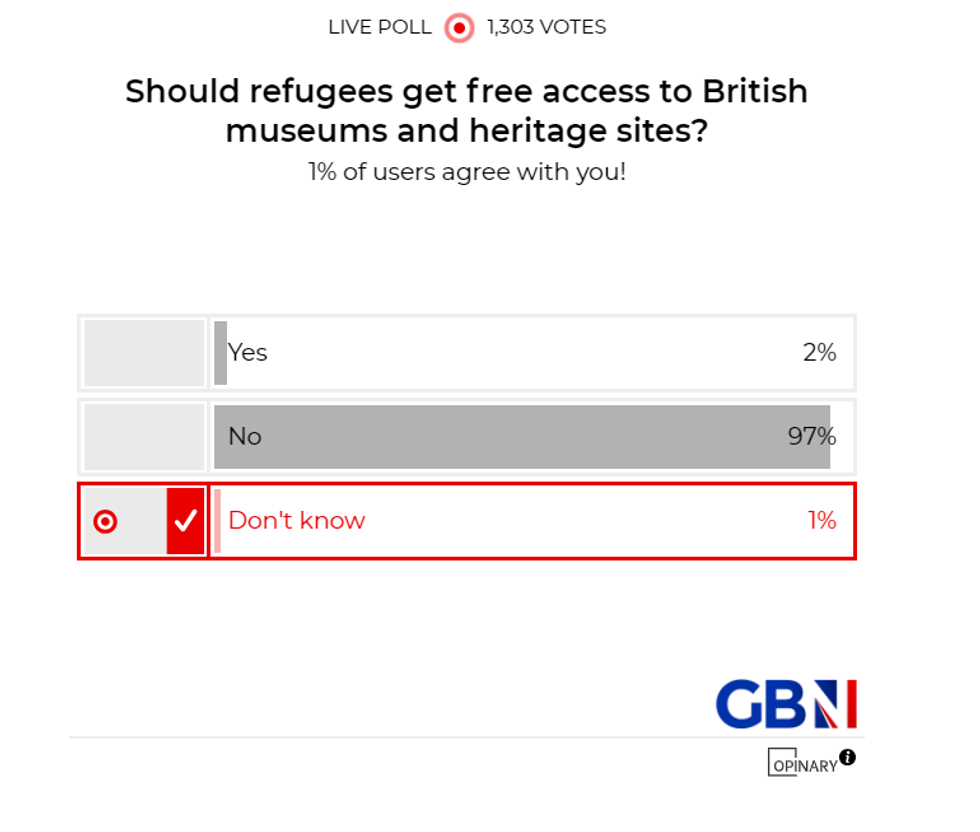
POLL OF THE DAY: Should refugees get free access to British museums and heritage sites? - YOUR VERDICT
|GB News
In criticism of the scheme, Dr Philip Kiszely of the New Culture Forum called for the benefits to be extended to other communities facing hardship in Britain, such as pensioners and veterans.
Kiszely told GB News: "What about pensioners, they have to pay a concession price at the moment. Maybe they could keep warm in some of our great country houses.
"Or what about veterans, for example? They have to pay to get in - why can't they go in for free?
"I'm sure some people are here who are very needy and desperate, but maybe they need to think about other things before they're going to Dover Castle.
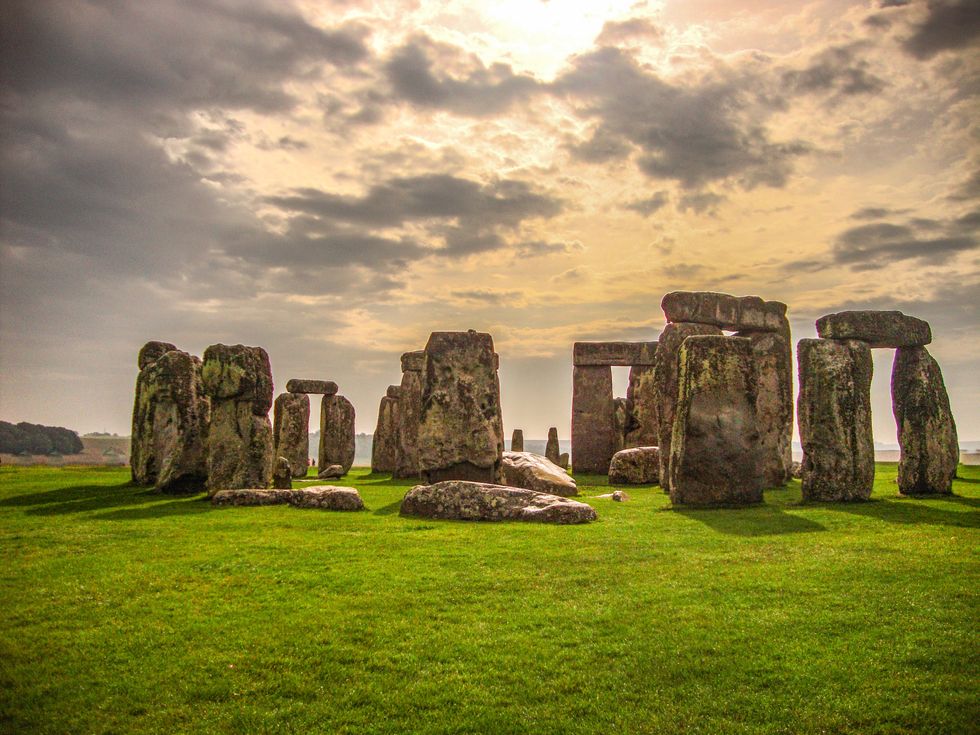 The scheme, which was launched in 2022, enables individuals who have been granted "refugee status" or "leave to remain in the UK as a displaced person" free entry to all of the English Heritage sites | Wikipedia Commons
The scheme, which was launched in 2022, enables individuals who have been granted "refugee status" or "leave to remain in the UK as a displaced person" free entry to all of the English Heritage sites | Wikipedia Commons"So let's not think about those people. Let's actually think about pensioners and veterans and people like that.
"Let's give them a free crack of the whip before we think about other people who arrived here yesterday."
A whopping 97 per cent of GB News members who voted in the poll believe refugees should not get free access to British museums and heritage sites.
On the other hand just two per cent believe that they should, while one per cent are unsure.






